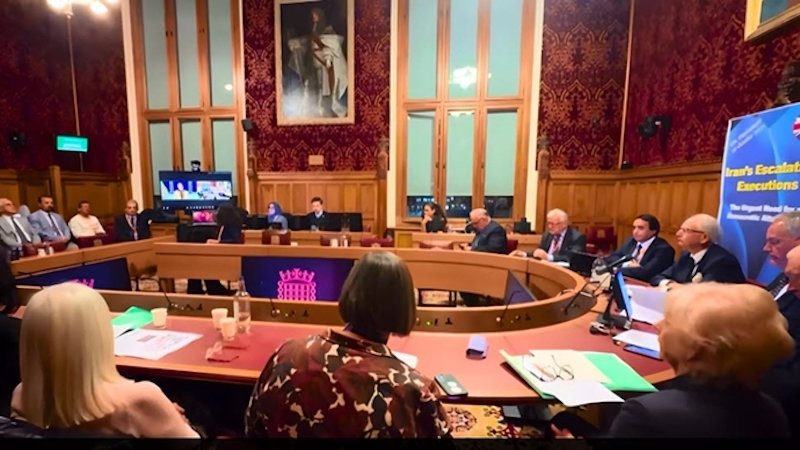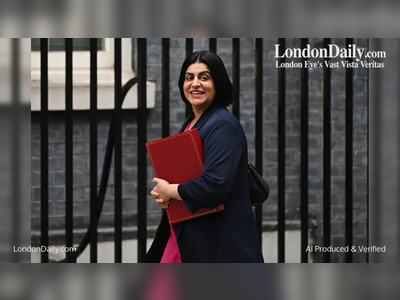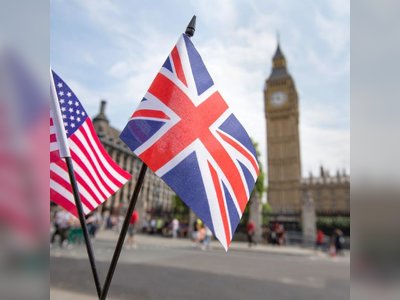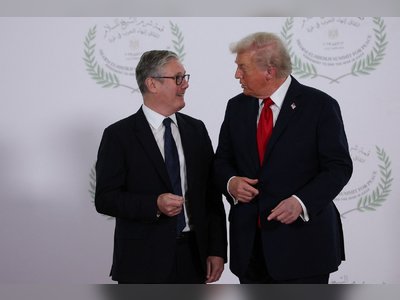
UK Parliament Demands Stricter Action on Iran as Executions Escalate
Cross-party Westminster conference urges proscription of IRGC and recognition of NCRI amid record executions in Iran
A high-profile conference at the United Kingdom’s Parliament brought together lawmakers, human rights advocates and members of the Anglo-Iranian community to address Iran’s sharp rise in executions and press for a firmer UK policy toward Tehran.
The gathering centred on the regime’s use of the death penalty as a tool of political repression and the case for recognising alternatives to the current leadership.
In a keynote address, Mrs Maryam Rajavi, president-elect of the National Council of Resistance of Iran (NCRI), stated that since the start of 2025 more than 1,400 people have been executed in Iran—a number she described as “unprecedented in the past 36 years.” She asserted these executions bypass due process, alleging that verdicts are handed down by “professional killers” in sham courts.
Mrs Rajavi highlighted at least 17 members of the People’s Mojahedin Organization of Iran (PMOI/MEK) face imminent execution for alleged links to the opposition, and called on the UK government and the international community to make engagement with Tehran conditional on a complete halt to executions.
She also urged the proscription of the Islamic Revolutionary Guard Corps (IRGC) and the formal recognition of the NCRI as Iran’s democratic alternative.
Speakers underscored the scale of the crackdown.
One peer noted that the death penalty has become “a weapon” for silencing dissent, rather than an instrument of justice.
Among the cases cited were a 67-year-old woman facing execution after a ten-minute trial for writing a slogan on women’s freedom, and a young boxing champion whose death sentence was upheld.
Others pointed to the disproportionate targeting of ethnic minorities including Baluchis and Kurds, and religious minorities such as Christians, Baha’is and Sunnis.
The conference saw strong cross-party consensus that the UK’s Iran policy must change.
Delegates called for an end to passive diplomacy and for robust measures including designating the IRGC a terrorist organisation, referring Iran’s human-rights record to the United Nations Security Council and enabling prosecutions of senior regime figures under universal jurisdiction.
A clear endorsement was given to the NCRI and Mrs Rajavi’s Ten-Point Plan, which proposes a non-nuclear Iran, gender equality, separation of religion and state, abolition of the death penalty, and full democratic suffrage.
Despite the regime’s intensified repression, the event highlighted signs of Iranian civil society’s growing defiance.
Mrs Rajavi pointed to the ongoing “No to Execution Tuesdays” campaign in over fifty-four prisons and cited the mobilisation of workers, teachers and youth.
Younger participants spoke of continuing protests despite danger and of the youth’s determination to carry forward the legacy of resistance.
The gathering concluded with a firm message: recognising the organised resistance of the Iranian people is not only a moral imperative but a strategic necessity for European and global security, and the era of passivity toward Tehran’s human-rights violations must end.
The gathering centred on the regime’s use of the death penalty as a tool of political repression and the case for recognising alternatives to the current leadership.
In a keynote address, Mrs Maryam Rajavi, president-elect of the National Council of Resistance of Iran (NCRI), stated that since the start of 2025 more than 1,400 people have been executed in Iran—a number she described as “unprecedented in the past 36 years.” She asserted these executions bypass due process, alleging that verdicts are handed down by “professional killers” in sham courts.
Mrs Rajavi highlighted at least 17 members of the People’s Mojahedin Organization of Iran (PMOI/MEK) face imminent execution for alleged links to the opposition, and called on the UK government and the international community to make engagement with Tehran conditional on a complete halt to executions.
She also urged the proscription of the Islamic Revolutionary Guard Corps (IRGC) and the formal recognition of the NCRI as Iran’s democratic alternative.
Speakers underscored the scale of the crackdown.
One peer noted that the death penalty has become “a weapon” for silencing dissent, rather than an instrument of justice.
Among the cases cited were a 67-year-old woman facing execution after a ten-minute trial for writing a slogan on women’s freedom, and a young boxing champion whose death sentence was upheld.
Others pointed to the disproportionate targeting of ethnic minorities including Baluchis and Kurds, and religious minorities such as Christians, Baha’is and Sunnis.
The conference saw strong cross-party consensus that the UK’s Iran policy must change.
Delegates called for an end to passive diplomacy and for robust measures including designating the IRGC a terrorist organisation, referring Iran’s human-rights record to the United Nations Security Council and enabling prosecutions of senior regime figures under universal jurisdiction.
A clear endorsement was given to the NCRI and Mrs Rajavi’s Ten-Point Plan, which proposes a non-nuclear Iran, gender equality, separation of religion and state, abolition of the death penalty, and full democratic suffrage.
Despite the regime’s intensified repression, the event highlighted signs of Iranian civil society’s growing defiance.
Mrs Rajavi pointed to the ongoing “No to Execution Tuesdays” campaign in over fifty-four prisons and cited the mobilisation of workers, teachers and youth.
Younger participants spoke of continuing protests despite danger and of the youth’s determination to carry forward the legacy of resistance.
The gathering concluded with a firm message: recognising the organised resistance of the Iranian people is not only a moral imperative but a strategic necessity for European and global security, and the era of passivity toward Tehran’s human-rights violations must end.









